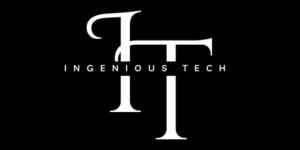Main Topic
The book “Bad Science” by Ben Goldacre explores the world of scientific misinformation, focusing on the realms of alternative medicine, pseudoscience, and the pharmaceutical industry.
Key Ideas or Arguments
- Critical Examination of Alternative Medicine: Goldacre critically examines various alternative medicine practices and exposes their lack of scientific evidence.
- Pharmaceutical Industry Scrutiny: The book delves into the manipulation and selective reporting of clinical trial data by the pharmaceutical industry, revealing unethical practices.
- Media’s Role in Misinformation: Goldacre highlights the media’s contribution to the dissemination of unscientific information, emphasizing the importance of responsible reporting.
Chapter Titles or Main Sections
- Introduction: Establishes the prevalence of bad science in society.
- Homeopathy: Analyzes the lack of scientific basis for homeopathic treatments.
- The Media’s MMR Hoax: Critically examines the media’s role in the MMR vaccine controversy.
- The Rise of Nutritionism: Explores the flaws in popular nutritional trends and fad diets.
- Drugs, Disease, and Deception in the Medical World: Investigates unethical practices in the pharmaceutical industry.
- Conclusion: Summarizes key points and advocates for improved scientific literacy.
Key Takeaways
- The book emphasizes the importance of critical thinking and scientific literacy in evaluating health-related information.
- Goldacre calls for increased transparency in scientific research and a more responsible role for the media.
Author’s Background and Qualifications
Ben Goldacre is a British physician, academic, and science writer. With a background in medicine and a column in The Guardian, he is well-qualified to dissect scientific claims and communicate complex ideas to a broad audience.
Comparison to Other Books
“Bad Science” stands out for its engaging writing style, combining humor with rigorous analysis. It is complemented by other works like “Snake Oil Science” by R. Barker Bausell and “Science Fictions” by Stuart Ritchie, offering different perspectives on scientific misinformation.
Target Audience
The book is accessible to a general audience interested in science, medicine, and critical thinking. It is particularly valuable for those seeking to navigate the complex landscape of health information.
Reception or Critical Response
“Bad Science” has received positive reviews for its compelling narrative and eye-opening content. Critics commend Goldacre for demystifying scientific concepts and exposing the pitfalls of misinformation.
Publisher and First Published Date
Published by Fourth Estate, “Bad Science” first hit the shelves in 2008.
Recommendations
- “Snake Oil Science” by R. Barker Bausell.
- “Science Fictions” by Stuart Ritchie.
To Sum Up
The biggest takeaway from “Bad Science” is the urgent need for scientific literacy to discern between valid scientific information and misinformation in the realms of medicine and health.



